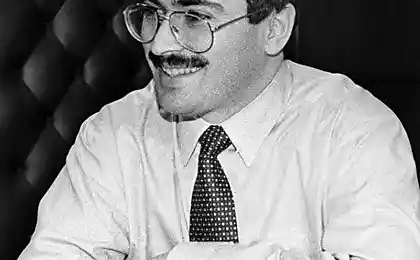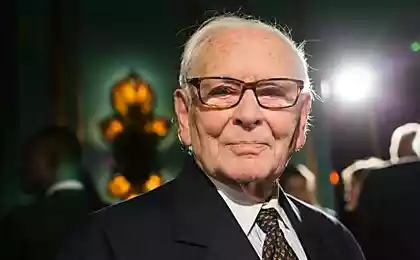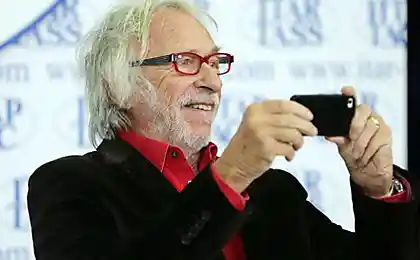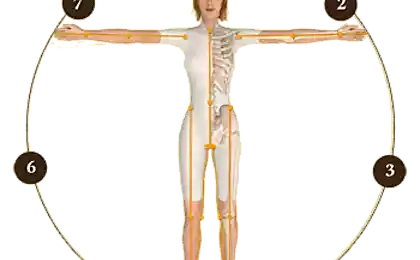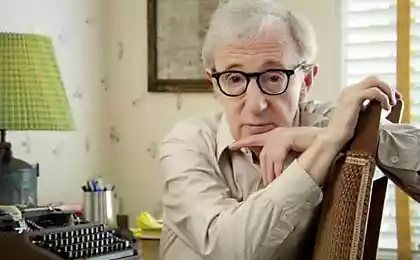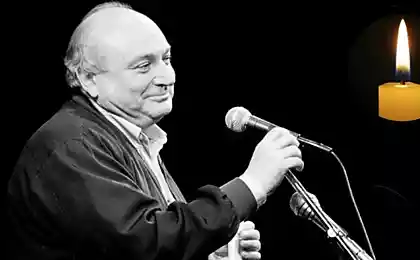471
Pier Vittorio Aureli waiver extra
Sixty six million five hundred eighty three thousand six hundred seventy four
In 2011 you wrote the book "the possibility of an absolute architecture." That you absolute architecture?
The word "absolute" is applicable to the object that is detached or separated. In the absolute architecture should be a reflection of the idea of separation, which is one of the fundamental principles of creation. To some extent this characteristic is inherent in any structure. In my research I tried to find examples of such radical separation.
— Could you give those examples?
— I don't want to focus on specific objects, because you do not want to label. And there was the master, who in his work addressed fundamental questions of architecture — Mies van der Rohe, Le Corbusier, Bulle, Palladio — they all tried to create architecture that stands out not only in the context of their environment, but in the space of historical development. Moreover, it is able to influence the environment, the thoughts and experiences of the people who get into it. Each building has so much potential, but only few architects manage to bring this aspect to the absolute.
— In the book you tried to build a new history of architecture. Tell me, what is its logic?
— The only way to understand the present through history. I don't like the idea that we need to be here and now to understand what is happening. First we must understand ourselves, understand where we came from. My book is an attempt to rewrite the history of architecture through the prism of political thought and their own political views, a way to reach people, so they began to think about the ideology of form. In the existing textbooks, we talk about objects, architects, analyzes the aesthetic aspects, sometimes touch on social issues, but most often it is poorly expressed.
— What is happening to modern architecture?
— The architectural idea has become apolitical, everyone is talking about the iconic buildings, aesthetics, design, but this was not worth no reasoning about the structure of the city and people's lives.
— Do you believe that through architecture it is possible to change society?
— Certainly. Architecture is part of the culture. Because we produce not only buildings, but also the knowledge, by projecting their own perception on product creation, enter into the discourse. But to change something impossible in one day, this will take time. However, the discourse has a certain influence on how we imagine the city.
Five million one hundred ninety nine thousand five hundred three
The same Le Corbusier, the Congress of SIAM (international Congress of modern architecture, 1928-59) — the traces of their activities, their thoughts and attitudes can be traced in the works of other architects. Today, this approach was lost. We have influential figures like REM Koolhaas, but their method is mostly limited to creation of beauty form, not more.
"Architecture is currently the only discipline that potentially has the ability to talk about space, not simply as an indifferent fact, but as an important political aspect of our lives. I think this conversation should be conducted not only through design, but also by means of philosophical language." — In 60-e years, there were many projects related to urban development. Big visionary projects was clearly expressed position of their authors on the structure of society.
— Architecture it is not only the building, not only design is a way of thinking, the way we look at space. There is a science geourbanistics, which considers the space in the scale of the city, but the architecture at the moment is the only discipline that potentially has the ability to talk about space, not simply as an indifferent fact, but as an important political aspect of our lives. I think this conversation should be conducted not only through design, but also by means of philosophical language. One of the first architects — Alberti, incidentally, was trained as a philosopher. If you do not cultivate this aspect in its project activities, solving design issues as such, discipline becomes a means of production meaningless objects or services.
— Your architect has to apply his vision of the political structure of society in his works?
— Don't have to do it intentionally. Every architectural project determines how people will live inside it. Even the architects are apolitical, caring only about the beauty of form, have an idea about how people will use their buildings.
— Today, many architects and designers pay much attention to the research, analyzing human behavior, reasoning about how to satisfy user requests.
— Yeah. What I find problematic in this approach that you describe — the lack of a critical eye. You need to be careful in the analysis, but it is impossible to offer solutions that reproduce old ideas. You as the architect have a responsibility to offer something new, even if it conflicts with reality. Analysis is important, but it should not dominate the work.
— In your lecture you talked a lot about the idea of modern asceticism. What does this mean for you?
— Asceticism — one of the oldest traditions of human subjectivity, a practice which is focusing on the activities of the individual in his behavior. Asceticism helps to structure the order of life, as subject design, where the object becomes your own life, habits. The European economy today is not in the best condition. The government imposes rather strict measures governing the economic behavior of society, which leads to a reduction in wealth of Nations. Don't know how this is true for Russia, but in Europe it is a big problem.
The younger generation of people, just graduated from institutions that can't find work, they don't have the opportunities that were from the older generation. Pay is low and sometimes not paid. A person has to learn to survive in this world. However, we are seeing an increased interest in creative professions among young people, the new poor, people who have little opportunity to find stable work. But it's not the category of the poor, whom we meet in the slums, because they somehow just know how to exist in poverty, and they are very creative with this. "The new poor" — people like you — find themselves in a strange situation. The situation, which was described by Walter Benjamina in the 1930-ies. In fact, all my research was inspired by his books. Asceticism, in turn, is the only way that tells how to cope with this situation, how to protect themselves.
— You mentioned that asceticism can be seen as a form of creativity. What does it mean?
— There is a perception that creativity is a privilege of talented people. But I believe that it is a fundamental property, inherent in all human kind. Man is an animal and what he differs from other animals is the presence of language. Language allows us to create literally out of nothing, with it we can constantly change things around us, to change the concept. Creativity is able to reveal when we find ourselves in crisis situations. For example, if a person is thrown into the unknown animal on his place is likely to die, and people will find a way to survive.
Eighty three million seven hundred one thousand seven hundred ninety four
Significant in this case, the story of Robinson Crusoe. Once on a desert island, he was able to organize their own activities having virtually nothing to work with. No coincidence that innovation has become one of the fundamental principles of capitalist ideology, which focuses on the entrepreneurial potential of the society, and he, in turn, is inseparable from the notion of creativity. Asceticism teaches us how to adapt your internal world to external changes.
— Asceticism in the work can be understood as a rejection of the superfluous, unnecessary.
— In Russia of the XIX century there was a movement of nihilists. They left the city, left the village and started a new life. Man, disengaged from civilisation, renounce rights, rejected orders and practices of the society in which he lived, and thus accept austerity. In Ancient Rome there was the concept of abdicatio or renunciation, the rulers resigned their powers, and the children abandoned the family heritage.
"Austerity allows a person to delineate the boundaries of need. Understanding is born of the dive inward, structuring their lives in accordance with these sensations, and not the result of subordination to the ruling opinion." In Russia also there was the concept of "foolishness". Holy fools called people who consciously abandoned the moral and moral foundations of society, pretending to be mad. His behavior, they tried to expose the shortcomings of the collective consciousness, which many did not notice. In your understanding, whether creative people behave in this way?
— Moreover, if they will not commit such acts of self-denial, the public consciousness and will remain under the control of the authorities. The radicalism of this kind is inevitable. In the Middle ages in Western Europe a number of so-called mendicant orders — as a response to the corruption and power of the Catholic Church. Among them were the Franciscans, who said that you don't want to have anything to do with this system. The founder of the order of St. Francis called themselves crazy. One day he appeared in the square of his hometown of Assisi completely naked, abandoning clothing as one of the defining social norms of society. His statement was not noticed in the future affecting the structure of the Church. He did not just provocation, he reformed the minds of people.
— The main thesis of your lecture was: less is determined by the need. How can we evaluate "necessary"?
— Penance allows a person to delineate the boundaries of need. Understanding is born of the dive inward, structuring their lives in accordance with these sensations, and not the result of subordination to the ruling opinion. In this case, "necessary" cannot be defined for another person.
But when we create something, we do it for others.
— No, you do for yourself. One can argue that society must live by the rules that you are not able to comply. At the lecture I gave the example of Steve jobs who was able to achieve excellence in the regulation of his own life, but not because he was a genius, he was just able to dive into your inner world and determine what it requires. However, the technology on which he worked, cause just the opposite effect. This, in my opinion, was the tragedy of his project. First and foremost, the austerity must be applied to itself, and using their example to influence others.
— How should architects today, given the current economic situation?
— Everyone should do what he likes. I think many people have a very vague idea of what they want to achieve in life, and in the end disappointed. My students I always say: "I don't care about your views and preferences, but you have to decide what you want to do. Maybe it's not architecture." published
P. S. And remember, just changing your mind — together we change the world! ©
Source: theoryandpractice.ru
The garden under straw, a bag of potatoes planted, 25 collected!
Vegetable casserole is simple and tasty

